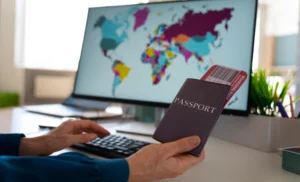Table of Contents
- Key Updates for 2025 at a Glance
- Who Counts as a Domestic Worker in the UAE
- Step-by-Step Renewal Process (Dubai-Focused)
- Step 1: Plan and pre‑checks (T–60 to T–45 days)
- Step 2: Put health insurance in place (T–45 to T–30 days)
- Step 3: Complete medical fitness (T–30 to T–20 days)
- Step 4: Renew Emirates ID if due (T–30 to T–20 days)
- Step 5: File contract and residency renewals (T–20 to T–10 days)
- Step 6: Pay fees and track status (T–10 to T–5 days)
- Step 7: Download updated documents and share with the worker (T–5 to T)
- Documents Required (Worker and Sponsor)
- Mandatory Health Insurance in 2025: What to Buy and When
- Fees, Processing Times, and Practical Timeline
- Common Mistakes and How to Avoid Them
- Legal and Compliance Risks if You Miss Steps
- Best Practices: Checklists, Scheduling, and Record‑Keeping
- Dubai-Specific Notes: GDRFA, ICP, Amer, and TAD‑BEER
- Frequently Asked Questions
Blog|08 Aug 2025
UAE Domestic Worker Contract Renewals: Key Information Employers Need in 2025

Renewing a domestic worker’s contract in 2025 is more structured than before, with health insurance and digital verification now central to approvals. If you sponsor a housemaid, nanny, cook, driver, or similar staff in Dubai, the process runs through MoHRE for the employment contract and through GDRFA Dubai and ICP for residency and Emirates ID. This guide explains what changed, the sequence to follow, how much to budget, which documents to prepare, and how to avoid delays and fines. You’ll also find Dubai-specific pointers and official links so you can complete each step confidently. Start early, keep documents consistent, and aim to finish before peak periods or travel windows to avoid last‑minute stress.
Key Updates for 2025 at a Glance
From 1 January 2025, health insurance is mandatory nationwide for domestic workers at the time of residence permit issuance or renewal. A federal Basic Health Insurance Scheme is advertised at AED 320 per year, with defined co‑pays, annual caps, and a set provider network; employers are responsible for purchasing the policy and cannot deduct costs from wages. Renewals now run through unified MoHRE channels where insurance status and Emirates ID validity are checked digitally before approvals progress. Contract models (full‑time, part‑time, temporary, flexible, remote, and job‑sharing where applicable) remain available within MoHRE’s framework, and workers over 60 can renew subject to MoHRE conditions. Explore official services and references here:MoHRE – Domestic Worker Contract Renewal, Basic Health Insurance Scheme, Contract amendments, and MoHRE guidance on renewals over 60.
Who Counts as a Domestic Worker in the UAE
Domestic workers are individuals employed within a private household under the UAE’s dedicated domestic worker rules, separate from standard private‑sector labour law. Typical roles include housemaids/domestic helpers, nannies and childcare providers, cooks, private drivers, gardeners, private nurses or caregivers, and housekeepers and similar roles. Their employment contracts and renewals flow through MoHRE’s domestic worker services and the residency system handled by GDRFA Dubai and ICP. Understanding that these roles are regulated under a distinct regime is important, because requirements, forms, and portals differ from general labour processes. Keeping documentation consistent across this ecosystem is key to smooth renewals.
Step-by-Step Renewal Process (Dubai-Focused)
Start 60 days before expiry. The most reliable path is to set reminders and handle insurance, medical, and ID items in the right order so that portal checks won’t stall your file later.
Step 1: Plan and pre‑checks (T–60 to T–45 days)
Begin by confirming the worker’s passport will be valid for at least six months beyond renewal and that your own Emirates ID remains valid. Review current contract terms—wage, weekly rest day, live‑in/out status, and role—to ensure they still match reality; if changes are needed, plan to file a contract amendment before renewal. Decide which health insurance plan you will use for the next term and verify it will be accepted for visa purposes. Taking stock early prevents time‑sensitive tasks from colliding later in the process.
Step 2: Put health insurance in place (T–45 to T–30 days)
Purchase or renew a compliant policy and keep the certificate or policy schedule ready for upload and checks. The federal basic scheme is advertised at AED 320/year with defined co‑pays and caps, while Dubai’s Essential Benefits Plan (EBP) options via DHA‑linked insurers are also widely used; premiums vary by insurer and profile. What matters for renewal is that the policy is active and accepted at ICP/GDRFA—ask your insurer or Amer center if unsure. Maintaining continuous coverage avoids failed checks and processing holds.
Step 3: Complete medical fitness (T–30 to T–20 days)
Book medical fitness for workers aged 18+ at an approved center and retain the certificate once issued. This result is time‑sensitive, commonly valid for about 30 days, so aligning the appointment with your filing window is important. If you anticipate travel or public holidays, schedule earlier to protect your timeline. Keep the certificate easily accessible alongside your insurance documents.
Step 4: Renew Emirates ID if due (T–30 to T–20 days)
Emirates ID renewal is linked to visa renewal through ICP, so expect biometric appointments if requested. Initiate the Emirates ID renewal within this window to keep pace with the residency steps. For general guidance, consult ICP’s Smart Services and the UAE Government portal page for renewing Emirates ID. Ensuring that the ID record is in order helps the digital checks pass cleanly.
Step 5: File contract and residency renewals (T–20 to T–10 days)
Log in with UAE Pass and submit the MoHRE Domestic Worker Contract Renewal via the official service: MoHRE – Domestic Worker Contract Renewal. In Dubai, handle residency renewal with GDRFA Dubai online or through Amer centers, and use ICP Smart Services for federal identity steps: GDRFA Dubai and ICP – Smart Services. Ensure that uploaded documents are clear, current, and consistent—names, numbers, and dates must match across passport, Emirates ID, insurance, and contract. Consistency is one of the most common blockers or sources of delay.
Step 6: Pay fees and track status (T–10 to T–5 days)
Pay renewal, labour card/contract, Emirates ID, and any service/typing fees as prompted by the portals or Amer/TAD‑BEER service centers. Keep payment receipts and acknowledgement pages; saving PDFs to a dedicated folder will simplify future audits or queries. Monitor application dashboards for requests or holds and respond promptly. Staying proactive here can easily shave days off the total processing time.
Step 7: Download updated documents and share with the worker (T–5 to T)
Once approved, download the renewed contract, residency documents, and updated Emirates ID confirmation. Provide your worker with copies so they have what they need for travel, medical visits, or other checks. Archive the final documents in your digital folder under a consistent naming convention. This closing step is also a good moment to set calendar reminders for next year’s milestones.
Documents Required (Worker and Sponsor)
Most applications need a predictable set of items for both the worker and the sponsor. For the worker, prepare a valid passport (six months minimum) and copy, current residence visa copy, Emirates ID copy or renewal application, a recent passport photo per MoHRE specs, the medical fitness certificate, the valid health insurance certificate/policy schedule, and the current contract copy. For the sponsor (individual/family), keep ready your passport copy and valid Emirates ID, UAE residence visa if expatriate, proof of address such as Ejari/tenancy or title deed, and income proof such as a salary certificate or employment letter; Emirati sponsors may include the family book where applicable. In company or embassy sponsorship cases, expect a trade licence and establishment card, authorized signatory documents, and a company letter and bank statements if requested.
Notes worth emphasizing: all names and dates must match exactly across documents; some nationalities may need additional items per country‑of‑origin rules (check with Amer/TAD‑BEER or MoHRE in advance); and renewals for workers above 60 should follow the latest MoHRE conditions. When in doubt, verify requirements at the counter before filing to avoid re‑visits. Keeping a single, organized folder per worker will prevent last‑minute scrambles and mismatches.

Mandatory Health Insurance in 2025: What to Buy and When
Insurance is now a condition for issuing or renewing residency permits for domestic workers across all emirates, and portals validate policy status during processing. The federal Basic Health Insurance Scheme is advertised at AED 320 per year and typically includes inpatient co‑pays around 20% (with per‑visit/annual caps), outpatient co‑pays around 25% (per‑visit caps), and medications around 30% (with annual caps), along with a defined provider network. Coverage spans emergency care, inpatient and outpatient services, maternity, diagnostics, and chronic conditions as advertised. In Dubai, many sponsors also use DHA‑linked Essential Benefits Plan options with premiums that vary by insurer and age, often in the AED 500–700+ range; acceptance for visa purposes is the key factor. Review options on the MoHRE Basic Health Insurance Scheme and sample EBP pages such as DNI – DHA EBP, and confirm acceptance with your insurer or Amer center before purchase.
To keep the process smooth, buy early and avoid coverage gaps so that digital checks pass on the first try. If your worker travels, consider a network that supports their likely clinics or a plan upgrade if appropriate. Keep the policy certificate in your application packet and renew the plan ahead of the contract expiry to avoid a last‑minute scramble.
Fees, Processing Times, and Practical Timeline
Costs vary by case and service speed, but sponsors typically plan for medical fitness (commonly AED 150–300 depending on speed and center), Emirates ID renewal (often AED 270–500 depending on validity period), and health insurance (federal basic at AED 320/year or Dubai EBP options typically around AED 500–700+ by profile). MoHRE contract renewal and labour card/contract fees appear in the application workflow, and you should also budget for service center/typing fees if using Amer or TAD‑BEER. Exact amounts can change, so verify the total at the time of filing on the official portals. Typical processing times: medical fitness results within 24–72 hours (faster with premium service), and MoHRE/GDRFA/ICP approvals often within 3–7 working days once documents are complete, with biometric capture timing added if requested.
A practical sequence that works reliably is to begin around T–60 days for document checks and plan selection, finalize insurance and gather documents by T–45, complete medical fitness and Emirates ID steps around T–30, file MoHRE and GDRFA/ICP renewals by T–20, and use the final 10 days to track and close out approvals. If you miss deadlines, GDRFA/ICP administer overstay penalties and fines; check your fine status and payment options directly via GDRFA Dubai and ICP dashboards. Government holidays and peak seasons can extend timelines, so early filing remains your best protection.
Common Mistakes and How to Avoid Them
The most frequent cause of delays in 2025 is an insurance lapse or using a plan that the visa system will not accept. Confirm acceptance with your insurer and an Amer center if necessary, and renew early so the policy is active when portals validate it. Expired passports or Emirates IDs create avoidable blocks; renew these essentials before filing the contract renewal. Mismatched names, dates of birth, or policy numbers across passport, Emirates ID, insurance, and contract trigger holds—proofread every document and keep a single “golden” copy set. Finally, last‑minute submissions collide with public holidays and peak periods, and unrecorded contract changes (like salary or live‑in/out status) should be updated through MoHRE’s amendment service before you renew.
Legal and Compliance Risks if You Miss Steps
Best Practices: Checklists, Scheduling, and Record‑Keeping
A simple renewal calendar is invaluable—set reminders at T–60, T–45, T–30, T–20, and T–10, and include health insurance renewal and Emirates ID expiry on the same schedule. Maintain one digital folder per worker with subfolders for passport/visa/ID, contract and amendments, insurance policies and receipts, medical fitness, and payment confirmations; name files consistently using a date‑first pattern (for example, YEAR‑MONTH‑DAY_DocumentName.pdf). Pay wages via traceable methods and keep a basic monthly ledger to document salary, allowances, and agreed benefits. Consider professional help for complex cases such as overstay, expired IDs, salary or role changes, renewals for workers over 60, multiple staff with staggered expiries, or when deadlines clash with travel or school calendars.
Dubai-Specific Notes: GDRFA, ICP, Amer, and TAD‑BEER
In Dubai, GDRFA Dubai manages residency services, and you can file renewals or settle fines online or at Amer centers. ICP handles federal identity and residency services, including Emirates ID and Smart Services. Domestic worker contracts and renewals are managed through MoHRE’s domestic worker services hub. TAD‑BEER and domestic worker service centers can assist with typing, appointment booking, and packaged services to streamline your renewal.
Frequently Asked Questions
Can I renew contract if my worker’s passport is expiring soon?
No. Renew the passport first—aim for at least six months of validity—then proceed with the contract and visa renewals so the application passes identity checks without holds.
Is insurance really checked at renewal?
Yes. In 2025, an active health insurance policy is a condition for issuing or renewing residency permits for domestic workers, and portals cross‑check policy status before approval. Keep your certificate ready and ensure the plan is accepted for visa purposes.
Which plan should I buy in Dubai—federal basic or DHA EBP?
Both routes are used successfully. The crucial factor is acceptance by ICP/GDRFA at renewal and that mandated benefits are met; confirm with your insurer or an Amer center and retain the policy certificate for filing.
How early can I start?
Start 60 days before expiry. Medical fitness and Emirates ID steps are time‑sensitive, so sequencing them before the MoHRE and GDRFA/ICP filings helps avoid repeat visits and overlaps.
Can a domestic worker travel during renewal?
Avoid travel while applications are in process. Travel can complicate medical/biometrics and status checks, and it may delay or disrupt scheduled appointments.
What if I changed salary or duties?
File a contract amendment through MoHRE first, then proceed with renewal so your records match reality.
Do I need to give a weekly rest day and leave?
Domestic worker regulations set rest day and leave entitlements. Keep these reflected in the contract and day‑to‑day practice to reduce disputes, and review MoHRE’s official guidance before renewal.
What if the worker is over 60?
MoHRE allows renewals over 60 subject to conditions. Expect closer checks on medical fitness and insurance in these cases and consult MoHRE’s guidance on older worker renewals.
Need hands‑off support?
If you prefer an end‑to‑end service in Dubai, you can engage a specialist to coordinate insurance selection, medical fitness booking, MoHRE filing, GDRFA/ICP steps, and document delivery—on schedule and with clear updates. To discuss your case or share your renewal date for a bespoke timeline, contact us.
Summary
- Insurance is mandatory at renewal in 2025; buy early and confirm plan acceptance.
- Start 60 days ahead and follow the sequence: insurance, medical fitness, Emirates ID, then MoHRE and GDRFA/ICP filings.
- Keep documents accurate and consistent to avoid delays, holds, and fines.







